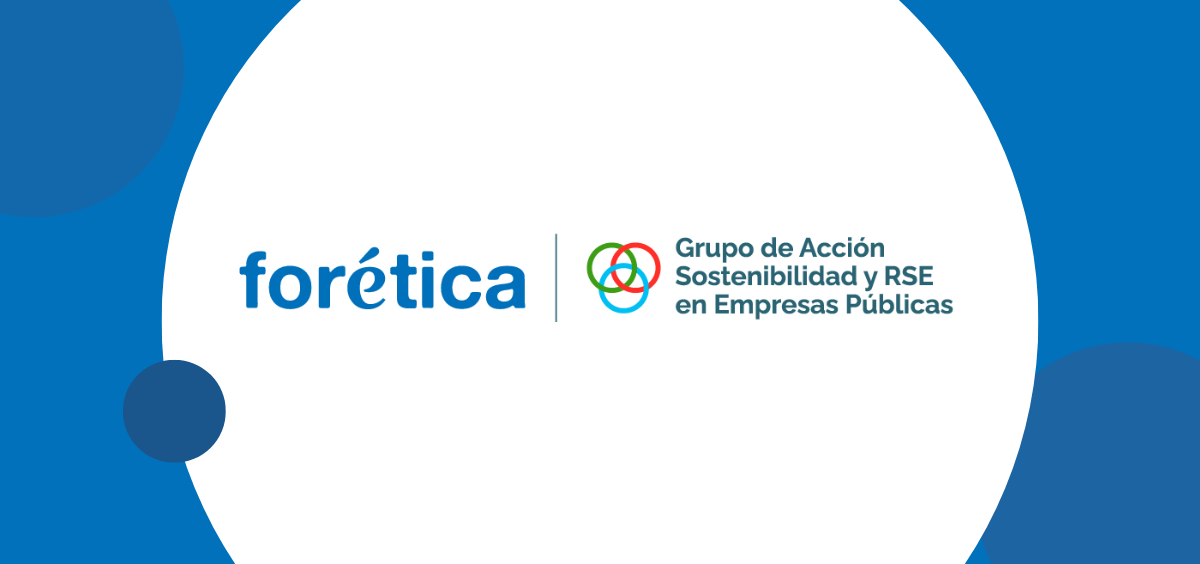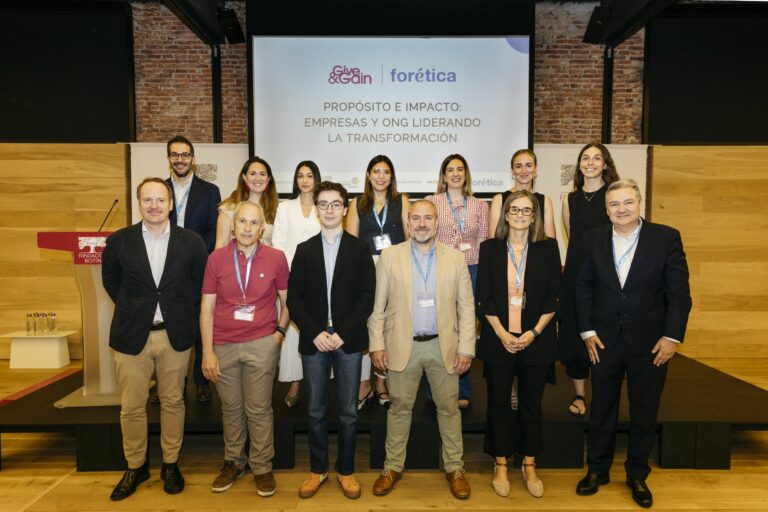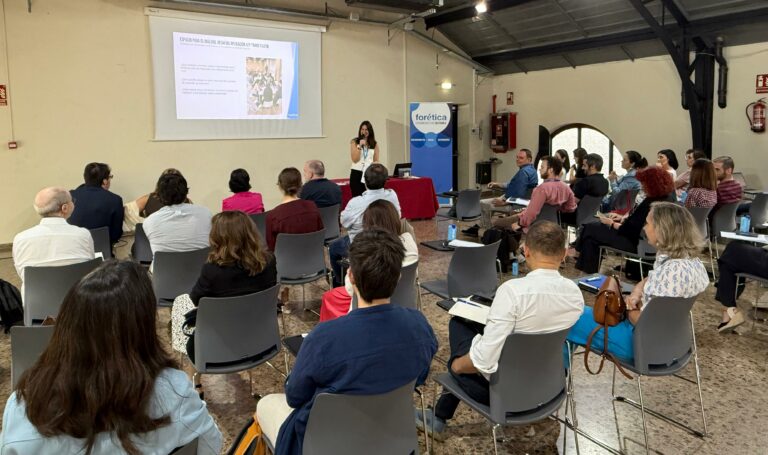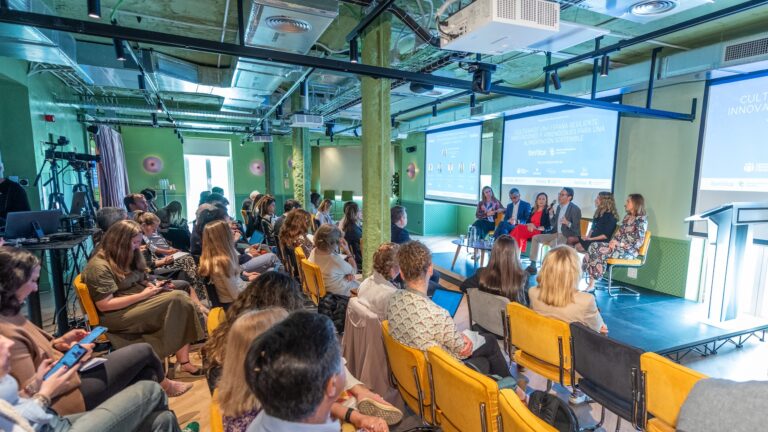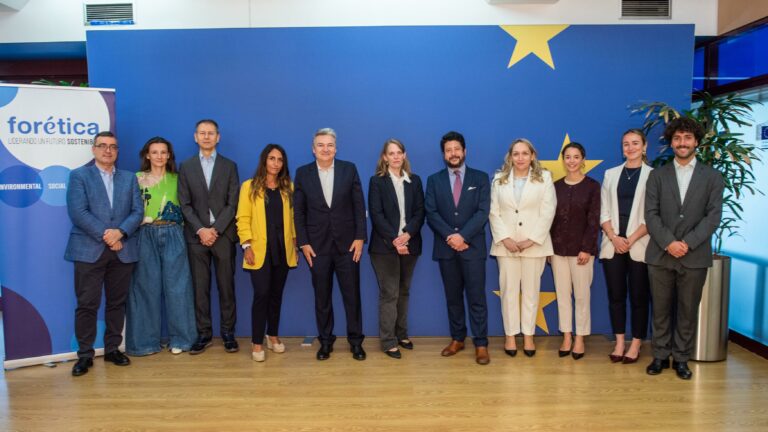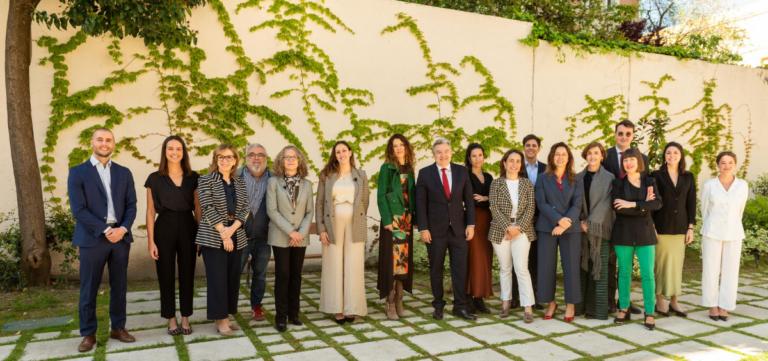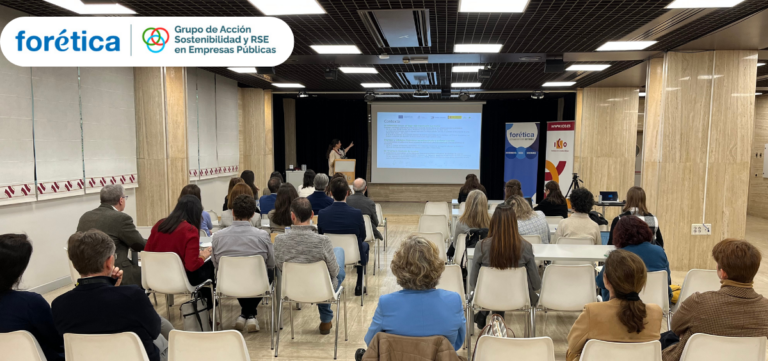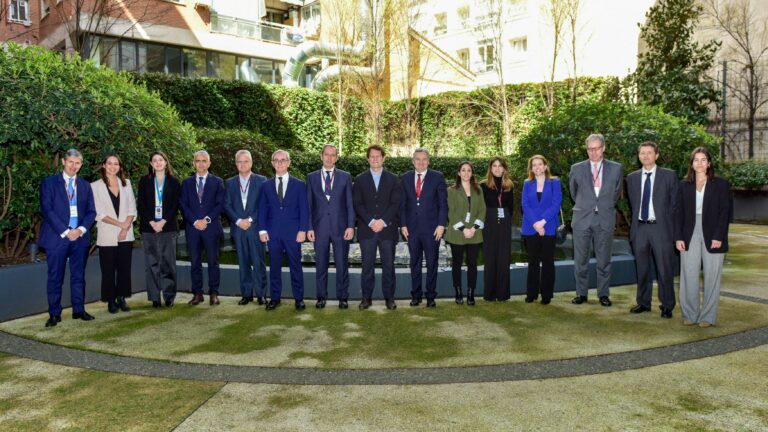- El Grupo de Acción de Sostenibilidad y RSE en las Empresas Públicas -liderado por Forética y compuesto por más de 30 entidades públicas, encabezadas por el Instituto de Crédito Oficial e Informa D&B- contribuye al Objetivo de Desarrollo Sostenible (ODS) 3 y presenta planes e iniciativas innovadoras en materia de salud, bienestar y desconexión digital de los empleados
- Tal y como se recoge en el reciente estudio publicado en el marco del Grupo de Acción, que analiza el compromiso de las empresas públicas con los nuevos marcos regulatorios de sostenibilidad de la Unión Europea, los aspectos sociales, entre los que se encuentran los vinculados a salud y seguridad en el trabajo, están recibiendo una mayor atención por parte de reguladores e inversores
- La salud y bienestar es además una de las nueve rutas de transformación empresarial incluidas en la hoja de ruta ‘Visión 2050’ presentada recientemente en el marco del Consejo Empresarial Español para el Desarrollo Sostenible
El Grupo de Acción de Sostenibilidad y RSE en las Empresas Públicas -liderado por Forética y compuesto por más de 30 entidades públicas, encabezadas por el Instituto de Crédito Oficial e Informa D&B-, aborda la contribución social de las empresas públicas al Objetivo de Desarrollo Sostenible (ODS) 3, en materia de salud, bienestar y desconexión digital de los empleados.
Tal y como se recoge en el reciente estudio publicado por Forética en el marco del Grupo de Acción, bajo el título ‘La sostenibilidad en las empresas públicas desde la triple perspectiva ESG. Compromiso con los nuevos marcos regulatorios de sostenibilidad de la Unión Europea’, los aspectos sociales, entre los que se encuentran los vinculados a salud y seguridad en el trabajo, están adquiriendo mayor protagonismo en las agendas de sostenibilidad de las compañías como resultado, entre otros factores, de una mayor atención de los grupos de interés -especialmente reguladores e inversores- y del impacto socioeconómico de la pandemia provocada por la COVID-19, que ha sido un acelerador de muchos de los retos globales.
Ana Gómez, Manager del Grupo de Acción de Sostenibilidad y RSE en las Empresas Públicas, destaca: “La salud es uno de los grandes ejes de la Agenda 2030 de Desarrollo Sostenible, no sólo porque cuenta con un objetivo propio (el ODS 3 de Salud y Bienestar), sino porque la salud es uno de los indicadores más fiables de desarrollo y sostenibilidad en la sociedad. Según establece Naciones Unidas, las personas sanas y felices son la base de las economías saludables, y por ello es imprescindible dar prioridad a este asunto y concebir su importancia de manera transversal. Dado el gran poder de actuación y el fuerte impacto que las organizaciones ejercen sobre las personas, deben trabajar por articular medidas inclusivas, respetuosas y ambiciosas que favorezcan la salud y el bienestar, una de las nueve rutas de transformación empresarial incluidas en la hoja de ruta ‘Visión 2050’ presentada recientemente en el marco del Consejo Empresarial Español para el Desarrollo Sostenible”.
Durante los dos últimos años se ha producido un aumento de los casos de ansiedad, depresión, soledad o estrés a nivel global, y según un reciente estudio publicado en The Lancet, se estima que la pandemia ha provocado 53 millones de casos adicionales de depresión y es ya la principal causa de discapacidad en el mundo. Se ha evidenciado la relación entre la inversión en salud y bienestar y la productividad en las organizaciones: según datos de la Organización Mundial de la Salud (OMS), por cada dólar invertido en el tratamiento ampliado de los trastornos mentales comunes, hay un retorno de 4 dólares en mejora de la productividad.
La acción de las empresas públicas en materia de salud y bienestar
En palabras de María Ordovás, Responsable del Grupo de Acción de Sostenibilidad y RSE en las Empresas Públicas: “Las nuevas tecnologías de la información y la comunicación han hecho surgir nuevas formas de organización del trabajo, tendencia marcada y acelerada con la necesidad de adaptación y digitalización de las empresas como consecuencia de la COVID-19 en los últimos años. La acelerada digitalización, la falta de desconexión digital, el mayor aislamiento de los trabajadores como consecuencia del teletrabajo o la nueva tendencia al ‘always on’, están teniendo un impacto negativo en la salud mental de los empleados. En esta línea, nos enfrentamos cada vez más a retos en relación a la delimitación entre tiempo de trabajo y descanso y desconexión digital, que pueden llegar a ser un riesgo psicosocial nocivo para la salud de un trabajador. Las empresas tienen la obligación de velar por su limitación y correcta gestión”.
El encuentro empresarial organizado por Forética en el marco del Grupo de Acción sobre esta temática ha contado con la participación de Jerónimo Maqueda, Director del Departamento de Promoción de la Salud y Epidemiología Laboral del Instituto Nacional de Seguridad y Salud en el Trabajo, quien se ha profundizado en el trabajo de la Red Española de Empresas Saludables y en la importancia de la adopción por parte de las organizaciones de un modelo avanzado de salud en el trabajo.
Además, tres empresas públicas que forman parte del Grupo de Acción han compartido sus planes e iniciativas innovadoras en materia de salud y bienestar del empleado: Informa D&B, con la intervención de Patricia Manzano, HR Assistant; ENAIRE, con la participación de Maite Montoto, Jefa del Departamento de Acción Social, y Carmen Carretero, Jefa del Departamento de Prevención de Riesgos Laborales; y Navantia, con Manuel Delgado, Responsable del Proyecto Navantia Empresa Saludable ‘Embárcate en Salud’.
El Grupo de Acción de Sostenibilidad y RSE en las Empresas Públicas, liderado por Forética y encabezado por el Instituto de Crédito Oficial e Informa D&B, está compuesto por más de 30 entidades públicas miembro: Adif, Aena, Aquavall, CESCE, Corporación Empresarial Pública de Aragón, Emasesa, ENAIRE, Enresa, ENUSA, Extremadura Avante, Grupo Tragsa, ICEX, INECO, Metro de Madrid, Navantia, Paradores, Renfe, RTVE, SENASA y Valenciaport. En el Grupo participan en calidad de miembros observadores las siguientes entidades: COFIDES, Corporación Pública Empresarial de Navarra (CPEN), Giahsa, la Guardia Civil, ISDEFE, la Dirección General de la Policía, Red Elige, la Red Nacional Sanitaria de RSC y Sociedad Mercantil Estatal de Gestión Inmobiliaria de Patrimonio (SEGIPSA).
El Grupo de Acción comenzó esta quinta edición en 2022 analizando la acción de las empresas públicas en la transición hacia las cero emisiones netas. El Grupo ha abordado en ediciones previas asuntos claves en materia de sostenibilidad como son el compromiso de las empresas públicas con los nuevos marcos regulatorios de sostenibilidad de la Unión Europea, la contribución a la Agenda 2030(con foco en las iniciativas vinculadas a transparencia, economía circular y voluntariado corporativo), la gestión de riesgos no financieros o la contratación pública responsable, entre otros.

